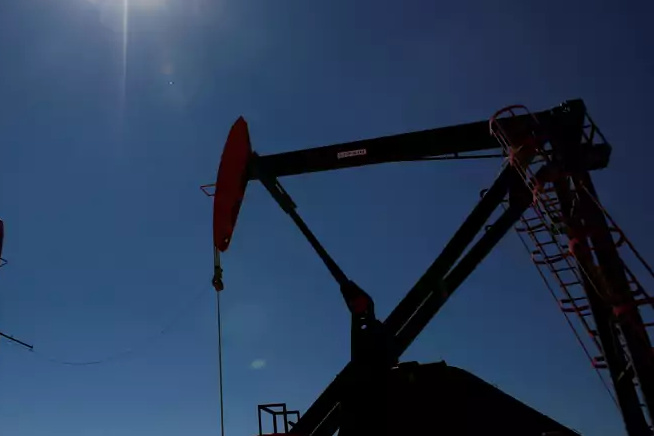(New York) Oil prices fell on Monday, in a market that took note of the various diplomatic initiatives to avoid the escalation of the war between Israel and Hamas, as well as a possible relief of sanctions imposed on Venezuela .
The price of a barrel of Brent from the North Sea for delivery in December fell 1.36%, to close at $89.65.
A barrel of American West Texas Intermediate (WTI), due in November, fell 1.17% to $86.66.
After hesitating for a long time, black gold prices have moved clearly into the red.
For Daniel Ghali of TD Securities, this drop is mainly due to two elements.
The first is the rise of diplomatic efforts to prevent the conflict between Israel and the Palestinian Islamist movement Hamas from spreading to other countries.
American Secretary of State Antony Blinken made a new trip on Monday, not initially planned, to Israel, where he had already gone on Wednesday, and was to meet Prime Minister Benjamin Netanyahu.
According to several media, President Joe Biden is also planning to visit the Jewish state.
Egypt, Qatar and Turkey have also intervened since the start of the war, based on their relations with Israel and Hamas.
“The Levant is not an oil-producing region,” recalled Daniel Ghali. “So as long as the conflict is contained, there will be no impact on oil production or trade. »
However, the market remains tense, concerned about a possible tightening of sanctions against Iran, a major producer, or even a possible participation of the Islamic Republic in the conflict.
Iranian Foreign Minister Hossein Amir-Abdollahian warned on Monday that in the absence of “political solutions,” “the likely spread of war to other fronts [was] approaching an inevitable stage.”
In addition to the negotiations in the Middle East, the operators also noted, according to Daniel Ghali, the agreement, reported by several media, between the Biden government and that of Venezuelan President Nicolas Maduro.
It provides for relief from sanctions on the country’s oil industry in exchange for holding presidential elections under international control next year.
The restrictions imposed by the United States in 2017 were intended to respond to Nicolas Maduro’s measures to muzzle the opposition and to condemn what they saw as an authoritarian drift.
These sanctions have divided the volume of Venezuelan crude exports by almost four, which reached nearly two million barrels per day in 2016.















